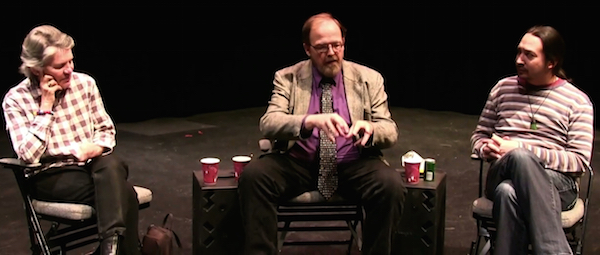Be they actor-singer-dancers or writer-director-producers, so-called “triple threats” are nothing new in show business.
Janice Akers takes it one step further as a quadruple threat: actor, director, educator and — with her appointment last fall as the new artistic director for Theater Emory — administrator.
Her growing list of duties has made finding time to act more difficult, but she is getting back to her first love this spring in Anton Chekhov’s “The Cherry Orchard,” running April 4-14 at Theater Emory.
Akers portrays Madame Ranevskaya, the deeply conflicted matriarch of an aristocratic Russian family on the brink of financial ruin. Like all Theater Emory shows, many of the younger roles are played by students, who will mix with professional actors: James Donadio, Mark Cabus, Clint Thornton and Donald McManus as Chekhov, who becomes a character in this production.
Consumed by guilt and grief involving the drowning death of her young son years earlier, Ranevskaya returns from a self-imposed exile in Paris to confront her demons.
“She’s an incredibly complicated woman, caught between two worlds, tied between Russia and France, navigating between the past and the future,” Akers said.
“Many things about her really resonate with me. She’s at an incredible juncture in her life where her choices are very difficult. Not everyone is going to approve of them. Sometimes, we all reach a point in our lives when we may be fragile but need to act boldly and take a risk.”
As Akers’ three-year term as Theater Emory artistic director develops, one thing is certain: Risks will be taken.
“We’re in a privileged position here to be able to focus on new work and innovative approaches to the classics,” noted her husband, Tim McDonough, also a teacher, actor and director at Emory. McDonough is a former artistic director for the company.
“Chekhov wrote this last play when he knew he was dying and there’s a real haunted quality about it,” McDonough said. “It’s preoccupied with time and death, with the letting go of a way of life and of life itself. There are many ghosts haunting the people in this play.”
Chekhov did not write himself into the play, but “in our production, Chekhov himself is one of them,” he said.
“Other (commercially driven) companies don’t always have the freedom to experiment in the same way, so it almost feels like our responsibility in contributing to the Atlanta theater community at large,” McDonough said.
A native of California, where she was one of the founding members of the still-thriving Sacramento Theatre Company, Akers and McDonough relocated to Atlanta in 1990 when he was offered a teaching position at Emory.
For the first several years, Akers was primarily regarded in Atlanta as an actress. Her local career included eight seasons performing the classics with Georgia Shakespeare and culminated in 7 Stages’ widely acclaimed “Black Battles With Dog,” which toured the world for some seven years, off and on.
But the scheduling demands of that show and Akers taking a full-time position with Emory’s theater in 2003 meant her stage appearances grew less frequent.
“I’ve certainly had my fair share of work around town over the years, but teaching simply prevents you from having the time to really get out there and audition for things as an actor,” Akers said.
While she has taken occasional acting roles at Theater Emory, such as 2009’s “Peer Gynt,” most of Akers’ work with the group has been off the stage, directing such productions as “Buried Child” and “The Night of the Iguana,” both of which featured McDonough in the cast.
“It’s a delicate balance,” she said. “My primary commitment is to Emory’s theater program and my primary focus is on educating our students.”
At the same time, auditioning and working is a valuable part of research as a teacher, in a sense practicing what she and her husband preach, she said.
Akers’ return to the stage will give her a chance to, like her character, “act boldly and take a risk.”

 In this new
In this new Jan Akers
Jan Akers Leslie Taylor
Leslie Taylor